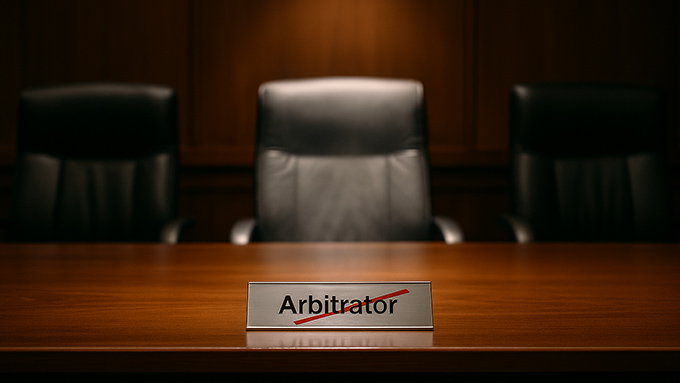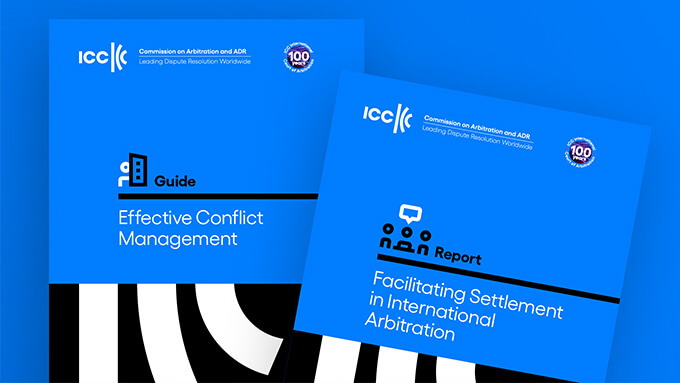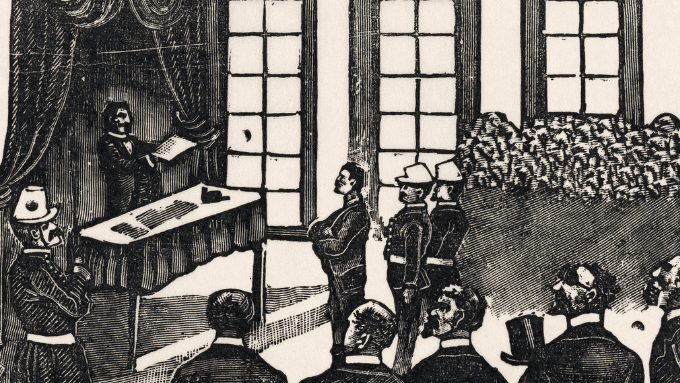Selection of Arbitrators
Introduction1
One of the most important reasons for parties to choose arbitration is the opportunity to freely choose their arbitrators. This freedom granted to the parties also distinguishes arbitration from proceedings before state courts, where the parties are deprived of the power to determine the judges who will conduct the proceedings. Although the selection of an arbitrator is the most important stage of arbitration, it is often under-emphasized and under-appreciated. This study aims to shed light on the arbitrator selection process with some practical information.
Arbitration Agreement
The first source to be considered in the selection of an arbitrator is the arbitration agreement. An arbitration agreement is an agreement reflecting the will of the parties to resolve the dispute through arbitration within the framework of the principle of freedom of contract. It may take the form of an independent arbitration agreement or an arbitration clause.2 Detailed provisions on the selection of arbitrators and their qualifications may be included in the arbitration agreement. It should be noted immediately that there is no "perfect arbitrator" suitable for every dispute. Some disputes may require the effective use of language or technical knowledge (construction, energy, M&A), legal competencies (detailed knowledge of the law applicable to the contract) or some personal characteristics (such as the ability to resolve complex disputes or analyze difficult legal issues). Therefore, the method of arbitrator selection and the qualifications of an arbitrator that are appropriate for one dispute may not be appropriate for another dispute. The important thing is to find the appropriate arbitrator for that dispute.
The parties should not be too selective and elaborate on the selection of arbitrators in the arbitration agreement. Setting too many selection criteria (such as nationality, age, gender, profession, language, etc.) may make the selection of arbitrators more complicated and may cause difficulties in finding candidates. Parties usually endeavor to select arbitrators from among experts in the area of law in dispute (insurance, construction, commodity trading, energy, etc.) and may include a provision to that effect in the arbitration agreement.
Arbitration Rules to be applied
The second source to be considered in the selection of arbitrators is the arbitration rules. Regardless of whether the arbitration agreement contains a provision on the selection of arbitrators or the qualifications of arbitrators, the arbitration rules selected shall be effective. Within the framework of freedom of contract, the parties may choose institutional (ICC, LCIA, ISTAC, ITOTAM, etc.) or ad hoc (UNCITRAL) arbitration rules for the resolution of the dispute and indicate this choice in the arbitration agreement. Unless the parties have made separate arrangements, the chosen arbitration rules shall also apply to the selection and qualifications of arbitrators.
Parties should be meticulous and diligent in selecting arbitration rules, as these arbitration rules may impose various restrictions. For example, sector-specific arbitration rules may require arbitrators to work in that sector or to have experience or expertise in that sector. This is the case with the GAFTA3 , FOSFA4 , and International Cotton Association5 Arbitration Rules. Although less common today, some arbitration rules may require arbitrators to be selected from a list prepared by the arbitral institution. Some arbitration rules may stipulate that the parties and the arbitrators to be selected have different nationalities. This is the case, for example, in the ICC Arbitration Rules (Art. 13(5) of the ICC Arbitration Rules).6 The same approach is also found in the LCIA, HKIAC, and SCC Arbitration Rules. This provision may be problematic, especially in cases where the parties are Turkish, the language of arbitration is Turkish, and the law applicable to the merits of the dispute is Turkish law. This is because in cases where the parties are Turkish, the number of arbitrators of different nationalities who speak Turkish well enough and have a good command of Turkish law to conduct an arbitration is very few. Therefore, it is recommended that the parties include a provision in the arbitration agreement that the chair or sole arbitrator may be a Turkish citizen.
There are also examples where different arbitration rules do not include this requirement. For example, the ISTAC, Swiss, VIAC, SIAC, and CIETAC Arbitration Rules do not require the chair or sole arbitrator to be of a different nationality. Notwithstanding the parties' choice of arbitrators, arbitration rules may also provide that the relevant arbitral institution may appoint all or part of the arbitrators directly and in exceptional circumstances. For example, Article 12 (9) of the ICC Arbitration Rules provides for such a regulation.7
National Laws
The parties may choose in the arbitration agreement a national law applicable to the arbitration agreement. In the absence of such a choice, the law of the seat of arbitration may also apply to the arbitration agreement and the selection of arbitrators. Generally, national arbitration laws give priority to the principle of freedom of contract and impose few restrictions on the selection of arbitrators. These restrictions can be categorized under several headings: Arbitrators may only be selected from among natural persons (Art. 7/B, 1 of the IAA; Art. 416/1, a of the CCP); arbitrators must disclose any circumstances justifying doubts as to their impartiality and independence before accepting an appointment (Art. 7/C of the IAA); arbitrators may be prescribed to be jurists (Art. 416/1, d of the CCP); arbitrators can not be selected from among those serving as judges in state courts (Art. 48 of the Law on Judges and Prosecutors). The enumeration here is not exhaustive and different national laws may impose different restrictions.
Many modern arbitration laws permit the appointment of foreigners as arbitrators (Art. 11/1 of the UNCITRAL Model Law on Arbitration). However, some national laws may provide for different nationality requirements for the selection of the sole arbitrator or the chairperson of the arbitral tribunal, in line with the provisions of the Arbitration Rules described above (Art. 11/1 of the UNCITRAL Model Law on Arbitration; Art. 7/B of the IAA).
Issues to be Considered in the Selection of Arbitrators
As mentioned above, there is no "perfect" arbitrator, but there is an arbitrator who is appropriate for your dispute. The criteria for determining this appropriate arbitrator can be listed as follows:
- Competence: This is the most important factor in the selection of an arbitrator. The arbitrator’s personal qualities, problem-solving ability, seriousness, work discipline, respect from colleagues, academic title, and publications, may be considered separately or together.
- Impartiality and independence: Another important factor in the selection of arbitrators is their impartiality and independence. Both arbitration rules and national laws impose an obligation on arbitrators to make a statement to this effect.8
- Time allocation: This issue has also become very important, especially in the last 10-15 years. The increase in the number of disputes and the relative scarcity of experienced arbitrators has increased the workload of arbitrators and limited the time they can allocate to each dispute. Therefore, even if a suitable arbitrator is found because of their personal qualifications and knowledge, it has become very important that this arbitrator has time to devote to the dispute. Today, many arbitral institutions require a declaration of independence and impartiality, as well as a statement from the arbitrators that they will devote sufficient time to the dispute.
- Technical knowledge: Depending on the nature of the dispute, the arbitrator's technical knowledge of a particular type of contract (construction, sole distribution, M&A, etc.) or a particular line of business (oil and gas, insurance, marine transportation, energy, etc.) may be important. This technical knowledge helps to understand and resolve the dispute faster.
- Language: The arbitration language agreed by the parties in the arbitration agreement has a direct impact on the selection of arbitrators. The lead arbitrator or sole arbitrator is expected to have sufficient command of the arbitral language to conduct the proceedings and to draft an enforceable award. For party-appointed arbitrators, language is important to participate effectively in the negotiations and proceedings. Some arbitration rules may provide for the conduct of arbitral proceedings in a particular language, unless the parties agree otherwise.9 Careful consideration should therefore be given to the arbitration rules chosen.
- Arbitration experience: This is another issue that the parties attach great importance to. The need for experience is usually more pronounced in the selection of the sole arbitrator and the chairperson of the arbitral tribunal. Having conducted arbitrations in different jurisdictions and under different arbitration rules is a wealth of experience. Participating in proceedings related to the same sector or the same type of contract is also important in terms of experience.
- Teamwork: This element is often overlooked. However, it is very important for arbitral tribunals. Arbitrators who are not interested, who do not respond promptly, who do not read the petitions, and who do not participate in the deliberations are a major problem for the arbitral tribunal and prevent it from working in harmony. However, the arbitral tribunal functions as a committee, and a spirit of teamwork is essential. Therefore, the parties take care to establish an arbitral tribunal that will work in harmony.
- Diversity: Diversity should not only be considered in terms of gender. Although it took time and a lot of effort for women to establish themselves in the historically male-dominated world of arbitration, the increase in the number of women arbitrators has paved the way for women to be appointed as sole arbitrators or to take part in arbitral tribunals. Arbitral institutions in particular have become more attentive to gender equality. In addition to gender diversity, diversity of origin, religion and race also adds a distinct perspective to arbitral tribunals.
- Their view on the legal issue in dispute: Before appointing their arbitrator, the parties and their lawyers usually want to understand the arbitrator's view on the legal issue in dispute. For this purpose, they search for the arbitrator candidate's scientific works, articles, conferences, speeches, and previous arbitral awards. Undoubtedly, it is important to know the arbitrator's legal opinion on a particular legal issue. No party wants to appoint an arbitrator who has a clear opinion contrary to its claim or defense. However, it should not be ignored that these opinions may change over time, that the decisions rendered in previous arbitral awards should be evaluated based on the concrete case, and that the opinions put forward abstractly in scientific works or conferences may also change within the framework of the conditions and material facts of the concrete case.
Preliminary Meeting with Arbitrator Candidates
Before the appointment of an arbitrator, the parties and/or their counsel wish to have a preliminary meeting with the prospective arbitrators. In practice, this preliminary meeting is also called an interview. However, this term is open to misunderstanding. In this meeting, the prospective arbitrators cannot be asked any questions about the concrete problem and cannot be queried for an opinion. This is usually the first and last meeting between the prospective arbitrators and the parties and/or their counsel (in cases where the selection of the chair is left to the party-appointed arbitrators, the party-appointed arbitrators may also contact the parties and/or their counsel about the prospective chair). The benefit of this common practice is to get to know the prospective arbitrators better, to get a sense of their characteristics, and to understand their working method (e.g., do they use an arbitration secretary, do they conduct their own research or have an assistant do it, do they have sufficient time to devote to this dispute, what is their arbitration experience, what is their approach to the method of selecting the chair, etc.). This preliminary meeting should in no way be an opportunity to obtain information from the prospective arbitrators about their view of the concrete dispute. Experienced arbitrators will not allow this to happen anyway. The disadvantage of this practice is that if the meeting is not conducted well, it may make the arbitrator candidates worried and a good candidate may not accept the assignment. Therefore, the process should be conducted very carefully. The IBA Guidelines on Conflicts of Interest in International Arbitration 2024 clearly defines the scope and limit of this meeting in Article 4.4.1.10
Issues to be Considered in the Selection of the Chair
In addition to the issues generally considered above in the selection of arbitrators, the following three issues are also considered in practice in the selection of the chair.
- Arbitral experience equal to or superior to that of the party-appointed arbitrators: It is important for the harmony within the tribunal that the chair is more experienced or at least as experienced as the other arbitrators. It prevents the chair from being directed.
- The ability to provide impartial and effective leadership in the conduct of the arbitration process: The chair is the leader, and the captain of the arbitral tribunal. It has a great responsibility and influence in the impartial, harmonious, and efficient conduct of the arbitration process. Its abilities should therefore be suitable to assume this responsibility.
- Managing the party-appointed arbitrators and countering biased arbitrators: One of the most tiring situations for the lead arbitrator is managing the party-appointed arbitrators and countering biased arbitrators who are in dispute on every issue. Despite all the warnings emphasized in this paper, the parties or their representatives may choose a completely biased candidate as an arbitrator, or the arbitrator may cease to be independent and impartial and take on the role of party representative. The chair must have the courage, knowledge, and experience not to allow this to happen. A weakness or an overlook in this respect can make the whole process unbearable for both parties and arbitrators. Awards rendered by arbitrators who are not impartial and independent may be annulled or face enforcement obstacles.
Method for Selection of the Chair or Sole Arbitrator
The parties or their counsel may engage directly in the selection of the sole arbitrator and the party-appointed arbitrators may engage directly in the selection of the chair. In practice, the list method ("listing") is usually used. First, an agreement is reached on the qualifications of the candidates (nationality, specialization, experience, age, gender, etc.). The number of candidates is agreed and the lists of candidates are shared with the other party. If there are overlapping name(s) on the lists, an agreement is reached on one of these name(s). If there are no overlapping names, each side crosses out a certain number of names, and negotiations continue on the remaining names. These negotiations will continue during the period for the selection of the sole arbitrator or the chair. Undoubtedly, this is not the only method and the parties, their counsel, or the party-appointed arbitrators may adopt other methods. Unfortunately, the scope of this paper does not allow for an explanation of other methods that are often used.
Although there are different opinions on whether party-appointed arbitrators should consult with the parties/their counsel during the selection process of the chair, this is a common practice. This avoids potential conflicts of interest and enables the parties to share their positive or negative experiences with the candidates and make a more informed selection. Even though party-appointed arbitrators generally consider justified and reasoned objections, they have the final say on the selection of the chair. Party-appointed arbitrators cannot take instructions from the parties or their counsel as to who the chair should be.
Even if the sole arbitrator or the chair is agreed upon, the arbitrator selected may be subject to the approval of the arbitral institution. For example, under the ICC Arbitration Rules, the appointment of all arbitrators, even if proposed by the parties or arbitrators, is subject to the approval of the ICC Court of Arbitration (Art. 13 of the ICC Arbitration Rules). In the absence of agreement on the sole arbitrator or the chair, the arbitral institution11 or appointing authority or the local courts at the seat of arbitration shall make the appointment by the applicable arbitration rules.
Conclusion
Success in arbitration depends not only on being right on the merits of the dispute but also on choosing your counsel and arbitrator well. There is no perfect arbitrator, but there is the appropriate arbitrator for your dispute. The selection of an arbitrator is a serious process and should be carried out carefully and meticulously. It should be kept in mind that the arbitrator selected is not your attorney and should not be expected to act as such.
- This paper is based on Prof. Dr. H. Ercüment Erdem's keynote speech at the event organized by Young ISTAC and ASA under 40 on 17 April 2024 as part of Istanbul Arbitration Days.
- For detailed information on the arbitration agreement, see Erdem, H. Ercüment: International Commercial Law, Updated and Expanded 2nd Edition, Istanbul 2020, par. 1657 et seq.
- Under GAFTA Arbitration Rules 125, if the sole arbitrator or the chair is appointed by GAFTA, they must be "Gafta's Qualified Arbitrators". This qualification requires at least 10 years of active work in the grain and seed trade, the necessary training and examinations. https://www.gafta.com/Gafta-Qualified-Arbitrator-Status.
- The FOSFA Arbitration Rules stipulate that arbitrators must be elected from among FOSFA members or their representatives, and must not be older than 75 years of age if still actively employed, or within two years of retirement. https://www.fosfa.org/arbitration/arbitration-rules-and-code-of-practice/the-guide-to-arbitration-and-appeals.
- To serve as an arbitrator for the International Cotton Assosiation ("ICA"), you must be an individual member of the ICA, pass the basic arbitrator exam, complete the first two modules of the advanced arbitrator exam training, have at least five years of experience in international cotton trade, and have sufficient command of English not to require an interpreter. https://ica-ltd.org/arbitration/become-arbitrator.
- On the selection of arbitrators under the ICC Arbitration Rules, see Erdem, par. 1772 et seq.
- Article 12 (9) of the ICC Arbitration Rules: "Notwithstanding any agreement by the parties on the method of constitution of the arbitral tribunal, in exceptional circumstances the Court may appoint each member of the arbitral tribunal to avoid a significant risk of unequal treatment and unfairness that may affect the validity of the award."
- On the impartiality and independence of arbitrators, see Erdem, par. 1776 et seq.
- For example, under the Arbitration Rules of the Hamburg Stock Exchange (Waren-Verein der Hamburger Börse e.V. Arbitration Rules), unless the parties agree otherwise, the language of arbitration is German (Art. 12 of the Arbitration Rules).
- https://www.ibanet.org/document?id=Guidelines-on-Conflicts-of-Interest-in-International-Arbitration-2024.
- This practice is very common in institutional arbitration. ICC, LCIA, AAA, Swiss, ISTAC and ITOTAM Arbitration Rules can be given as examples.
All rights of this article are reserved. This article may not be used, reproduced, copied, published, distributed, or otherwise disseminated without quotation or Erdem & Erdem Law Firm's written consent. Any content created without citing the resource or Erdem & Erdem Law Firm’s written consent is regularly tracked, and legal action will be taken in case of violation.

























